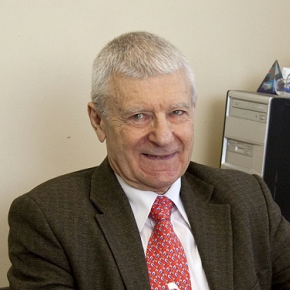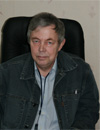NATO, U.S. set to continue to work with Russia on missile defense
NATO and the United States said they would continue consultations with Moscow to prove that their European missile shield project poses no threat to Russia's strategic nuclear capabilities.
Russian President Dmitry Medvedev outlined on Wednesday a series of possible "appropriate measures" if missile defense talks between Moscow and Washington result in failure, including the deployment of "advanced offensive weapon systems" targeting the European component of the missile defense network.
Other military measures outlined by Medvedev included the placement of an early-warning radar in the Russian exclave of Kaliningrad, the increased protection of nuclear deterrent assets around the country.
NATO Secretary General Anders Fogh Rasn mussen said the Russian president's plans to deploy offensive weapon systems on European borders was "very disappointing."
"Cooperation on missile defense would clearly show that NATO and Russia can build security together, not against each other," the secretary general said in a statement.
"Last year, NATO Heads of State and Government decided to invite Russia to discuss the possibilities of cooperating with us and to develop the NATO-Russia relationship into a strategic partnership," he went on. "That offer still stands."
Rasmussen added that cooperation on the issue "would allow us to deal with new threats and old suspicions at the same time" and "show that cooperation, not confrontation, is the way ahead."
U.S. State Department deputy spokesman Mark Toner reiterated that his country's focus and commitment "remains on how to work productively and constructively" with Russia on missile defense.
"The rhetoric from Russia hasn't changed, even though we've seen for many years - we've tried for many years to engage with them constructively on missile defense. We're going to continue to try to engage with them constructively on missile defense," Toner told the media in Washington.
The spokesman also commented on another measure outlined by Medvedev, according to which Russia may halt its disarmament and arms control efforts, including participation in the new strategic arms reduction treaty with the United States.
"The New START Treaty benefits the security and stability of both our countries, and its implementation is going well, and we see no basis for threats to withdraw from it," Toner said.
The Russian president was speaking ahead of a NATO ministerial meeting in Brussels on December 7-8.
The U.S and NATO plan to place elements of the European missile shield in Poland and Romania. The Alliance has dismissed Russia's concerns over the shield, saying it needs it to deal with "rogue states" such as Iran.
Moscow is seeking written, legal guarantees that the shield will not be directed against it, but Washington has refused to put its verbal assurances in writing.
Russia and NATO tentatively agreed to cooperate on the European missile defense network at the Lisbon Summit in November 2010, but differences in approaches toward the project led to a deadlock in negotiations.
Medvedev reiterated on Wednesday Russia's proposal to create a joint missile defense system. He also said, however, that Russia would not participate in a project that went against its interests.
Belarus has already started working on the site, Lukashenko said.
The agreement was signed by Rosatom's head Sergei Kiriyenko and Bangladeshi Minister for Science, Information and Technology Yeafesh Osman.
If the results are confirmed, they would fundamentally change the understanding of how the universe works.



